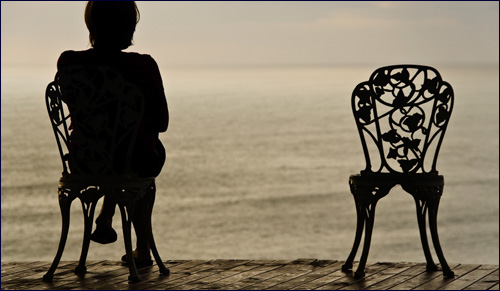 Iran’s Attack on Israel
Iran’s Attack on Israel


4 min read
3 min read
7 min read
3 min read
We are admonished to be extra sensitive to and solicitous of widows. But are we?
“All the righteous women died before their husbands so they should be spared the degradation of being widows,” suggests one of our commentators after the death of Sarah, the wife of Abraham.
I don’t know if there are fewer righteous women today or if this blessing no longer applies, but women now outlive their husbands at staggering rates – and are frequently subjected to all the pain and loneliness and other travails of widowhood.
There are many unfortunate aspects to the widowed state. The Midrash refers particularly to the degradation, the humiliation.
What does this involve and what is our responsibility? We are admonished to be extra sensitive to and solicitous of widows. But are we?
There is something seductive and powerful about couple-hood. Couples seek out other couples. Couples often define the social experience. We got out in groups of even numbers (dating back to Victorian England where this was de rigueur for a successful dinner party!) We even have an expression for it: “Two’s company, three’s a crowd.” Not exactly welcoming words for the widows in our lives.
Do we even stop to think how all the singles among us feel – the not yet married, the divorced and the bereaved widows? I’ve heard story after story, each one more appalling than the last, of hurts both big and small – from the rabbi’s widow being kicked out of the house by the synagogue to the widow who was told very explicitly by a so-called friend, in answer to an invitation to go out, that they would rather go out with another couple. “It’s just much more comfortable for us.”
It’s unbelievable that people can be so cruel and thoughtless – but the stories continue – the widow who was told she couldn’t join an outing because they didn’t want to squish with her in the back seat to the one whose desperation left her (and her life savings) susceptible to the wiles of a con artist.
Yes, there are the social slights that may lead a woman to choose to just stay home (Imagine all the meals spent alone!) rather than risk ongoing rejection and there are the financial humiliations – the discovery that her situation is not as rosy as imagined, the need to turn to others for assistance, the less than helpful responses, the loss of homes, lifestyles, opportunities.
There are, within our community, some wonderful organizations that strive to help widows but sometimes when there is an institution around to help, we as individuals feel less obligated, less responsible, less inclined to step up to the plate. We don’t do our individual share. We can’t rely on an organization to invite a widow out to dinner or over for Shabbos, to go to a play with her or a concert or a walk in the park. For those activities you need individual time and, even more importantly, individual caring. You need a friend.
Now that women are living longer and significantly longer then their spouses, it is up to us not only to fulfill the Torah proscription against oppressing a widow but to take proactive steps, to be affirmatively kind, to reach out to them before they have to call us, to make them a part of our lives and our families. And most of all to never make them feel like that proverbial “crowd”. This is an opportunity for all of us to give – and, as with all giving, we will be the ones who will benefit the most.
